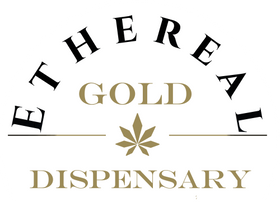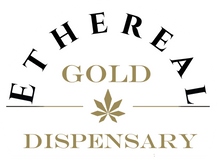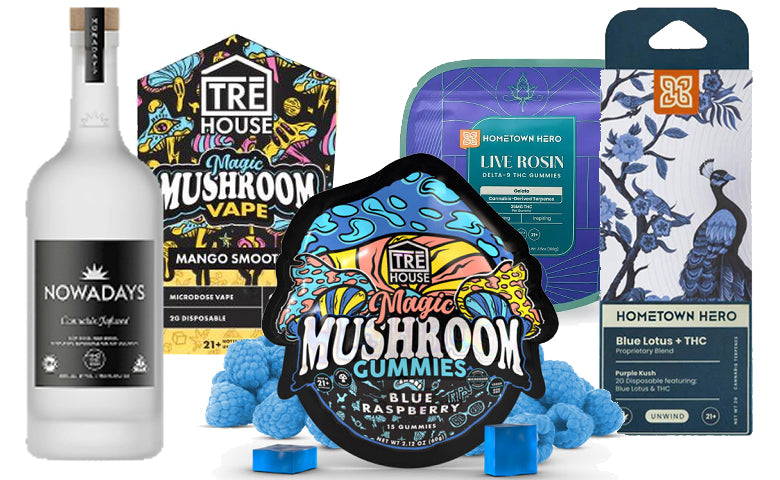The world of cannabis has experienced significant growth in recent years — with many new and innovative products entering the market. One such product, the THCa cart, has gained considerable attention for its unique properties and benefits. However, as appealing as THCa carts may be, they remain federally illegal in the United States due to the 2021 USDA Final Ruling if over 0.3% Delta-9 THC post-decarboxylation. In this comprehensive article, we'll explore the reasons behind their illegality, the impact of the ruling on these cartridges, as well as delving into the science of cannabinoids and the broader implications of federal cannabis regulations.
Understanding THCa
Tetrahydrocannabinolic acid (THCa) is a non-psychoactive cannabinoid found in raw cannabis plants. In its natural state THCa has been researched for its potential benefits, making it an intriguing compound for those interested in the properties of cannabis. Some of those benefits may include:
- Anti-inflammatory properties: THCa has shown promise in research for its potential to reduce inflammation, which may be helpful for individuals seeking comfort and overall well-being. By interacting with the immune system and suppressing the production of certain chemicals in the body, THCa could potentially help promote a healthy lifestyle.
- Neuroprotective properties: Studies indicate that THCa may have neuroprotective effects, potentially safeguarding the nervous system from damage. This attribute could prove useful in supporting brain health and maintaining cognitive function.
- Antiemetic properties: THCa has been studied for its potential antiemetic qualities, providing relief from discomfort associated with nausea. This can be particularly beneficial for those seeking to alleviate gastrointestinal distress.
So what makes THCa illegal? Decarboxylation and THC conversion. When heated, THCa undergoes a process called decarboxylation, converting it into the well-known psychoactive compound Delta-9 THC (this is the main psychoactive component in cannabis that we typically refer to as just THC). This transformation occurs during smoking, vaporizing, or cooking with cannabis, resulting in the euphoric "high" associated with marijuana use.
This means that THCa carts (including THCa vape carts, THCa diamond carts, and THCa distillate carts) contain concentrated THCa extracted from cannabis plants. These products are designed to deliver THCa with a lower amount of reported Delta-9 THC than 0.3% in testing. These products were perfectly federally legal between the start of the 2018 Farm Bill up until the USDA Final Ruling of the Farm Bill in March of 2021.

The 2021 USDA Final Ruling
In March 2021, the United States Department of Agriculture (USDA) issued a final ruling that established the legal parameters for domestic hemp production. This decision provided much-needed clarity on the distinction between legal hemp and federally illegal marijuana, helping both producers and consumers navigate the evolving landscape of cannabis regulation.
The USDA's ruling defined hemp as a cannabis plant containing a total THC concentration of 0.3% or less on a dry weight basis. This crucial distinction between hemp and marijuana is determined by the combined levels of Delta-9 THC and THCa found in the plant or product. As a result, the total THC content serves as a decisive factor in determining the legal status of a cannabis product under federal law.
By setting the total THC limit at 0.3%, the USDA's ruling has had a significant impact on the hemp industry, as it requires growers, manufacturers, and retailers to ensure their products comply with this threshold. Producers must now perform rigorous testing and maintain accurate records to verify their products' total THC content, ensuring they meet federal guidelines.
On the consumer side, this ruling has provided a benchmark for determining the legality of various cannabis products (including oils, edibles, and topicals). With the 0.3% total THC threshold in place, individuals can now more easily identify legal hemp products and make informed decisions about their cannabis consumption.
While the USDA's ruling has helped bring clarity to the hemp industry, it is essential to note that regulations may still vary on a state-by-state basis. Consumers and businesses alike should stay informed about their state's specific cannabis laws to ensure compliance and avoid potential legal issues.
The Legality of THCa Carts
The popularity of cartridges has grown in recent years, as they offer a concentrated form of THCa for consumers seeking to experience its potential benefits. However, the high concentration of THCa in these carts can pose a challenge when it comes to complying with the 2021 USDA Final Ruling on total THC levels.
With the total THC limit set at 0.3%, a THCa vape cart can easily surpass this threshold due to the combined amounts of Delta-9 THC and THCa present in the product. As a result, most THCa cartridges available on the market are deemed federally illegal, except for those containing a micro-dose of THCa that keeps the total THC content below the allowed limit.
The implications of this ruling are significant for both manufacturers and consumers. Producers of a THCa cartridge must ensure their products adhere to the federal guidelines, which may involve modifying their extraction processes or adjusting the concentration of cannabinoids to achieve compliance. This could ultimately impact the availability and variety of THCa vape carts on the market.
For consumers, the 2021 USDA Final Ruling highlights the importance of understanding the legal landscape surrounding cannabis products. It is crucial for individuals to be aware of the federal regulations and their state's specific laws when purchasing and using a THCa cartridge or any other cannabis product. By staying informed, consumers can make educated decisions and avoid potential legal issues related to their cannabis use.

The Science of Cannabinoids
Cannabinoids are a diverse group of chemical compounds found in cannabis plants. There are over 100 known cannabinoids, each with unique properties and potential therapeutic benefits. THCa is just one of these compounds, and its federal illegality highlights the complexity of cannabis regulations and the need for continued research into the potential medical applications of lesser-known cannabinoids.
In addition to THCa, other non-psychoactive cannabinoids (such as cannabidiol (CBD) cannabigerol (CBG) and cannabinol (CBN)) have gained attention for their potential therapeutic benefits. These compounds have been shown to exhibit anti-inflammatory, antioxidant, and neuroprotective properties, among others. The growing interest in non-psychoactive cannabinoids has led to the development of a wide range of legal cannabis products, including CBD oils, tinctures, and topicals.
On the opposite side of this coin you have the federally legal psychoactive cannabinoids such as Delta-8 THC, THC-P and HHC. These cannabinoids are all federally legal under the 2018 Farm Bill so long as they are from a hemp-derived source and have a total amount of total THC less than 0.3% by dry weight. This allows for incredibly potent, federally legal THC products from gummies to disposable vapes.
The Broader Implications of Federal Cannabis Regulations
The 2021 USDA Final Ruling highlights the ongoing tension between federal and state cannabis regulations in the United States. While many states have legalized marijuana for medical or recreational use, it remains a Schedule I substance under federal law. This classification means that, according to the federal government, marijuana has no accepted medical use and a high potential for abuse. The disconnect between state and federal regulations creates legal uncertainty for both consumers and businesses operating in the cannabis industry.
Furthermore, the federal illegality of marijuana and certain cannabis products (such as THCa carts) has a significant impact on research efforts. Federal restrictions on cannabis research have hindered scientific progress, limiting the understanding of the full range of benefits and potential risks associated with cannabis use. Increased research could help to inform more evidence-based policy decisions and ensure that consumers have access to safe and effective cannabis products.
THCa Cart Alternatives
Although THCa cartridges are not legally available nationwide, Ethereal Gold Dispensary offers a wide range of federally legal cannabis products for customers seeking a similar experience. For those interested in vaping a psychoactive cannabinoid, hemp-derived THC-P vape carts and Delta-8 THC carts provide a legal alternative to enjoy the benefits of cannabis. These products contain cannabinoids that are not subject to the same federal restrictions as THCa, allowing consumers to experience the potential therapeutic effects of cannabis without the risk of breaking federal law.
In addition to vape carts, other legal cannabis products available at Ethereal Gold Dispensary include tinctures, topicals, and edibles made with hemp-derived CBD, CBG, as well as various psychoactive cannabinoids. These products can provide a variety of potential health benefits, such as relief from pain, inflammation, and anxiety.

State-Level Cannabis Legalization
There are different state level laws for both THC-rich and Hemp-derived cannabinoid products. Federally legal products can be shipped between states (depending on the state’s specific laws about certain cannabinoids such as Delta-8 THC, which has been outlawed in quite a few states).
In states where marijuana has been legalized for medicinal or recreational purposes, consumers may have access to a wider range of cannabis products, including THCa carts and other THC-rich items. These products can typically be found at licensed dispensaries operating within the state's legal framework.
It is important for consumers to recognize that despite state-level legalization, marijuana and marijuana-derived products (such as a THCa cart) continue to be federally illegal. This means that the possession, consumption, and distribution of these products are subject to federal law enforcement — even when state laws permit their use.
One significant aspect of this federal illegality is the restriction on transporting marijuana or marijuana-derived products across state lines. Even if a consumer is traveling between two states where cannabis is legal, crossing state boundaries with these products could result in legal ramifications. This includes potential fines, confiscation of the products, or even arrest and criminal charges.
To avoid any legal complications, consumers should exercise caution and adhere to the regulations set forth by both state and federal laws. This includes purchasing and consuming cannabis products only within the state where they are legally allowed and abstaining from transporting them across state lines. By staying informed and following the applicable laws, individuals can safely and responsibly enjoy the benefits of cannabis within the confines of their respective state's legislation.
The Best THCa Carts: Options for States without Rec Cannabis
While THCa cartridges offer a unique cannabis experience, their federal illegality under the 2021 USDA Final Ruling means they remain inaccessible to many consumers. This means that if you are looking for the best THCa cart possible, you will need to be in a state where THC-Rich cannabis has been legalized. Fortunately, Ethereal Gold Dispensary provides a range of federally legal cannabis cartridges for those seeking a safe and enjoyable experience. As the legal landscape surrounding cannabis continues to evolve, it's crucial for consumers to stay informed about the latest developments in federal and state regulations. By understanding the current legal restrictions and potential alternatives, cannabis enthusiasts can navigate this complex landscape and enjoy the benefits of cannabis in a safe and responsible manner.
Ready to enjoy our federally legal cannabis carts? Enjoy 10% off an order with the discount code MAYBLOG10%, which is usable on any one-time purchase item!
FAQ
Are Binoid THCa Carts legit?
Binoid is a reputable brand known for producing high-quality cannabis products. However, it's essential to note that the legality of their cartridges depends on the total THC content of the product. If the total THC (the combination of Delta-9 THC and THCa) is below 0.3% on a dry weight basis, then the product is considered federally legal. Always check the lab results and product specifications to ensure you're purchasing a legitimate and compliant product.
Can I legally buy a THCa Live Resin Cart?
The legality of THCa Live Resin Carts depends on the total THC content and the jurisdiction in which you reside. If you live in a state where marijuana is legal for medical or recreational use, you may be able to purchase a THCa Live Resin Cart legally. However, if the total THC content exceeds 0.3%, these products are considered federally illegal, and their availability will depend on state-level cannabis laws.
Is high potency THCa legal?
High potency THCa products are only legal if the total THC content, including both Delta-9 THC and THCa, is below 0.3% on a dry weight basis. Products with high concentrations of THCa may exceed this limit, making them federally illegal. It is essential to check the total THC content and the legal status of cannabis in your jurisdiction before purchasing or using high potency THCa products.
Is THCa Flower legal?
THCa flower is legal if it meets the federal definition of hemp, with a total THC content of 0.3% or less on a dry weight basis. However, if the THCa Flower has a total THC content above 0.3%, it is considered marijuana and is federally illegal. Be sure to verify the total THC content and the legal status of cannabis in your state before purchasing or using THCa flower.
Are THCa Concentrates legal?
THCa concentrates are legal if the total THC content is below 0.3% on a dry weight basis. However, because concentrates typically contain high levels of cannabinoids, many THCa concentrates exceed this threshold — making them federally illegal. The legality of THCa concentrates depends on the total THC content and the cannabis laws in your state. Always check the lab results and product specifications to ensure compliance with federal and state regulations.







